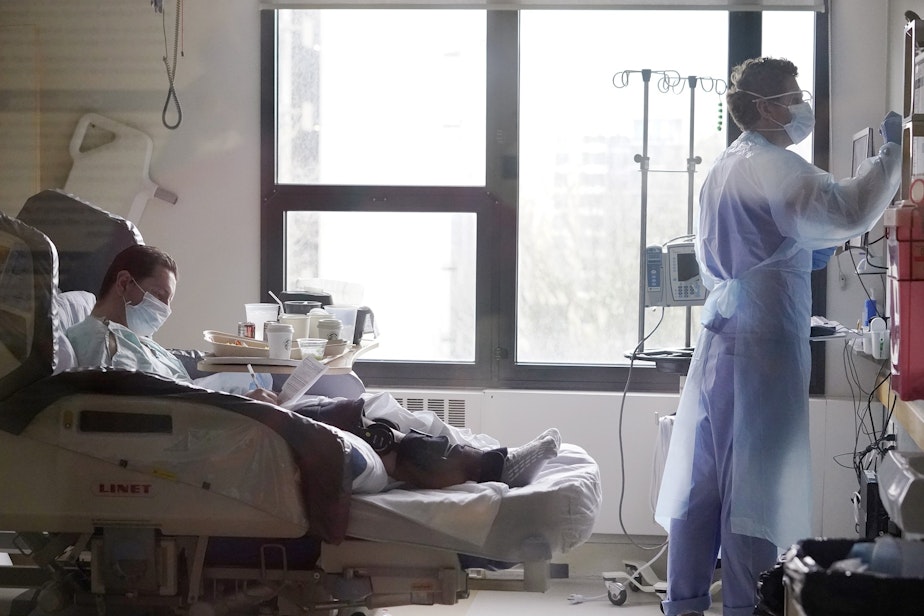Washington's hospital system is financially 'fragile' despite improvements

For the first time in four years, financial losses at hospitals across Washington state are slowing down — and no hospitals are at risk of immediate closure.
Since the pandemic, hospitals in Washington have lost $4.5 billion, according to the Washington State Hospital Association.
But CEO Cassie Sauer said finances for the state's hospital system remain "fragile."
"We've had more than three years of significant losses due to skyrocketing costs for supplies, labor, equipment needed to provide care," Sauer said during a press conference Tuesday.
RELATED: Washington state hospitals are still losing money, leading to 'heartbreaking decisions'
Sponsored
During the first nine months of 2024, net operating losses for Washington hospitals totaled $398 million. That's according to Eric Lewis, the chief financial officer for the Washington State Hospital Association. During the same period in 2023, operating losses totaled $1.3 billion.
Sauer credited cost-cutting measures and a Medicaid payment increase that was passed by the state Legislature in 2023 for the improvement.
Lewi said the increase in payments helped "stabilize" hospitals across the state.
"Without the increase in Medcaid funding, hospitals would have lost $1.2 billion from operations during the first nine months of 2024," he explained.
Operating expenses at Washington's hospitals continue to rise though.
Sponsored
RELATED: UW’s new mental health hospital can’t fill its beds
Lewis said total operating costs increased by 11% in 2024. He said that's because of a rise in patients as well as inflation linked to the cost of staff, supplies, and drugs for the uptick.
"There is still a long ways to recover," he said.
Despite the improvement to hospitals' financial health, a survey from the Washington State Hospital Association found 70% of hospitals and health care systems in the state continue to lose money, and Lewis emphasized that cuts to Medicaid would send hospitals back into a "financial crisis."
"These programs are all under threat of cuts under the new federal administration," Sauer added on the topic of Medicaid. "Some of the things that are being discussed are per-capital caps on Medicaid or requirements that can be challenging for people to do all the paperwork for and stay eligible."
Sponsored
Medicaid portals went down Tuesday across the country after President Donald Trump's administration ordered a freeze on federal grants and loans; that order has since been rescinded but not before it caused widespread panic and confusion.




